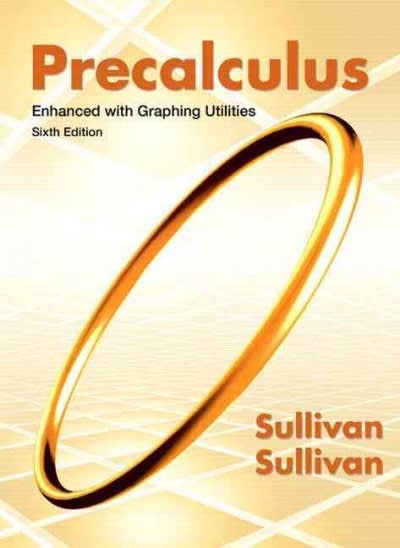Question
Suppose that a pharmaceutical company has asked you to work as a consultant on their COVID-19 vaccine project. They are planning to conduct a study
Suppose that a pharmaceutical company has asked you to work as a consultant on their COVID-19 vaccine project. They are planning to conduct a study to demonstrate that their vaccine candidate is more effective than the one Pfizer and BioNTech announced in early November 2020, which was stated to have efficacy of 90% against placebo in participants without prior evidence of SARSCoV-2 infection. They currently plan to enroll 2,000 participants, randomizing half to receive their vaccine candidate and half to receive the vaccine candidate from Pfizer and BioNTech. They are interested in detecting a difference in proportions of at least 5% on the outcome of whether a patient becomes infected with SARS-CoV-2. The results of the trial will be analyzed with a two-sided test. Previous dose-testing trials have been conducted to determine the lowest possible dose of virus sufficient for infecting most of those exposed; this will be the dosage used in the current study. Participants in the study will be healthy volunteers ages 18-30 years who consent to being deliberately exposed to the SARS-CoV-2 virus in a controlled setting and have screened negative for risk factors associated with severe COVID-19. Following exposure, any participants who test positive for the virus will be immediately treated with an antiviral drug. Studies that involve deliberate exposure of participants to an infectious disease are commonly referred to as challenge trials. You have been asked to conduct a simulation study to assess whether the study team has chosen an appropriate sample size. Based on discussions with the study team, you decide it seems feasible that they have identified a more effective vaccine and assign probability 0.75 to the alternative hypothesis
Suppose the study team conducts the trial and obtains statistically significant evidence that the new vaccine candidate has efficacy greater than 90%, with p-value = 0.03. A news outlet reports on the research finding, claiming that based on the p-value, the new vaccine is substantially better at protecting against COVID-19 than the Pfizer/BioNTech vaccine. why is the news outlet's interpretation of the p-value flawed and what is an accurate interpretation?
Step by Step Solution
There are 3 Steps involved in it
Step: 1

Get Instant Access to Expert-Tailored Solutions
See step-by-step solutions with expert insights and AI powered tools for academic success
Step: 2

Step: 3

Ace Your Homework with AI
Get the answers you need in no time with our AI-driven, step-by-step assistance
Get Started


